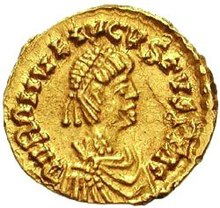| Millennium: | 1st millennium |
|---|---|
| Centuries: | |
| Decades: | |
| Years: |
| 475 by topic |
|---|
| Leaders |
| Categories |
| Gregorian calendar | 475 CDLXXV |
| Ab urbe condita | 1228 |
| Assyrian calendar | 5225 |
| Balinese saka calendar | 396–397 |
| Bengali calendar | −118 |
| Berber calendar | 1425 |
| Buddhist calendar | 1019 |
| Burmese calendar | −163 |
| Byzantine calendar | 5983–5984 |
| Chinese calendar | 甲寅年 (Wood Tiger) 3172 or 2965 — to — 乙卯年 (Wood Rabbit) 3173 or 2966 |
| Coptic calendar | 191–192 |
| Discordian calendar | 1641 |
| Ethiopian calendar | 467–468 |
| Hebrew calendar | 4235–4236 |
| Hindu calendars | |
| - Vikram Samvat | 531–532 |
| - Shaka Samvat | 396–397 |
| - Kali Yuga | 3575–3576 |
| Holocene calendar | 10475 |
| Iranian calendar | 147 BP – 146 BP |
| Islamic calendar | 152 BH – 151 BH |
| Javanese calendar | 360–361 |
| Julian calendar | 475 CDLXXV |
| Korean calendar | 2808 |
| Minguo calendar | 1437 before ROC 民前1437年 |
| Nanakshahi calendar | −993 |
| Seleucid era | 786/787 AG |
| Thai solar calendar | 1017–1018 |
| Tibetan calendar | 阳木虎年 (male Wood-Tiger) 601 or 220 or −552 — to — 阴木兔年 (female Wood-Rabbit) 602 or 221 or −551 |

Year 475 (CDLXXV) was a common year starting on Wednesday (link will display the full calendar) of the Julian calendar. At the time, it was known as the Year of the Consulship of Zeno without colleague (or, less frequently, year 1228 Ab urbe condita). The denomination 475 for this year has been used since the early medieval period, when the Anno Domini calendar era became the prevalent method in Europe for naming years.